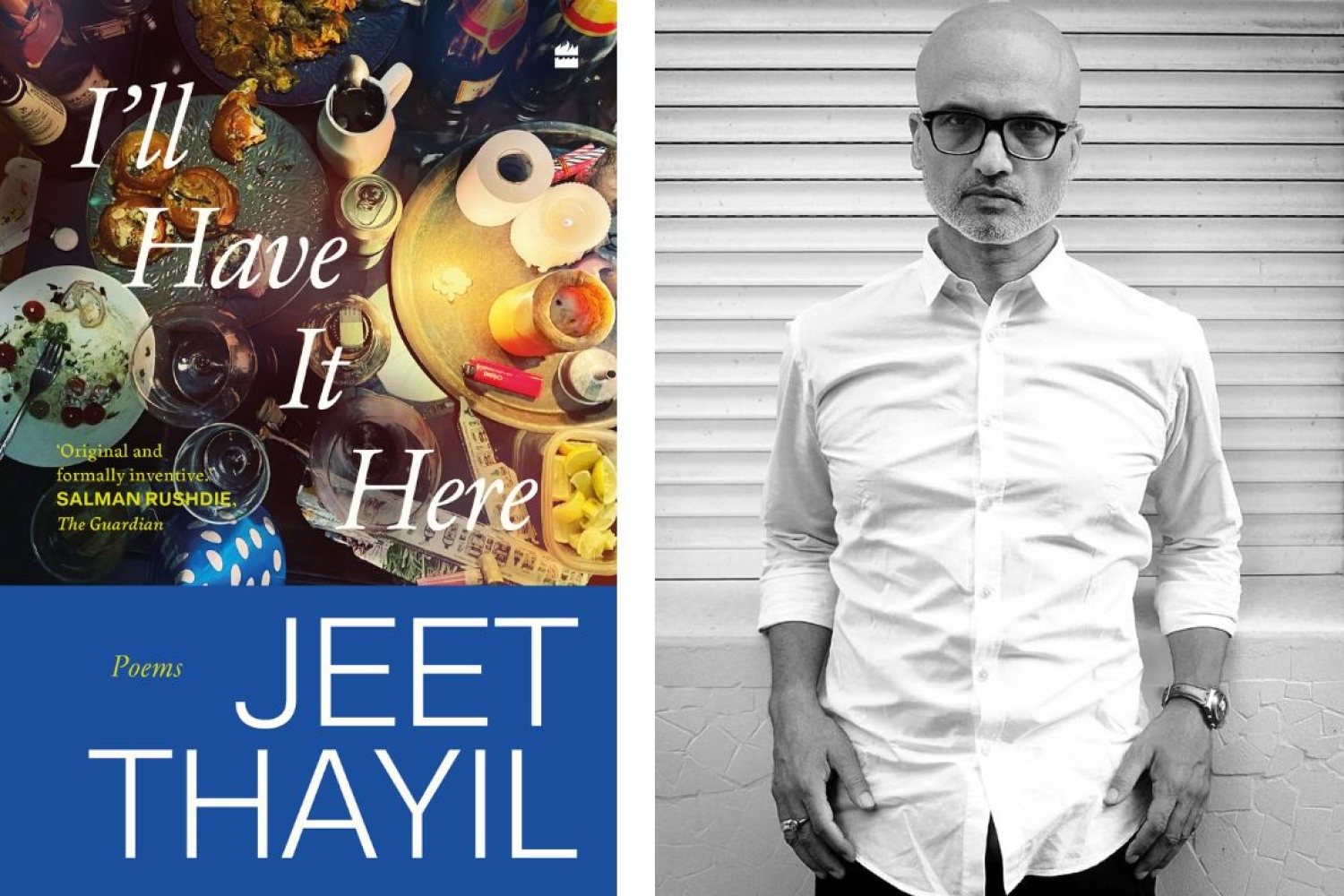
Photography: Akanksha Sharma

Photography: Akanksha Sharma
The first poem in Jeet Thayil new collection of poetry is titled 'Diminishing Marginal Utility.' An economic concept that runs through the strands of his rhythmic poetry. He values time, the limit of it, and the amount of pleasure as well as grief one can derive from this limited amount of time we have on Earth.
After a long hiatus from poetry following his 2009 collection These Errors Are Correct, Thayil had declared a break with the form. But as we now see with I’ll Have It Here, his reunion with poetry feels more like a return to the inevitable. The poems emerge with a new playfulness and musicality, infused with themes both personal and universal—the weight of time, the collapse of systems, the financial world and the unsteady recovery of our collective world. In this conversation, Thayil reveals how the collection came to life, his process, and hints at what’s to come next as he prepares his next novel.
These Errors Are Correct was originally considered your final book of poetry. What shifted, and how did I’ll Have It Here come about? How has your relationship with poetry evolved since then?
I thought it was my final book of poems. Clearly, when it comes to poetry, you should take nothing for granted. Not its disappearance or its abundance. I've learned to be grateful when a poem makes its way into my head. And I'm always happy for the unexpected ones that fall into your lap fully formed. It's like improvisation when you're playing or listening to music. Nothing else brings you so fully into the moment.
The title I’ll Have It Here is intriguing. Does it evoke an image of a dinner table where one must devour both the good and the bad aspects of life? What does the title mean to you personally?
It might be a reference to the limited amount of time we have as humans. There's little point saving up your money or holidays or poems for a future that may never come. I think this is a feeling we all have, more and more as the years pass, that the future may not exist, or not for very long. You might as well have it here. The image of a dinner table is a good one. Or the image on the cover, of a party, after ruin has set in.
The musicality of your poems is often highlighted in discussions of your work. How important are sound and rhythm in shaping the poems, and how do they influence the reader’s experience?
Poems began as songs, back in the day when they were orally transmitted from generation to generation. That's why we have rhyme and meter: it makes a poem easier to memorize. The prose-like poem is mostly a twentieth century phenomenon. Which is fine. But there's a reason why the sonnet (that is, songlet) has been with us for at least seven centuries, and will continue to be with us as long as poems are written and read. There's a comfort in rhyme and rhythm––and a dopamine hit.
There’s a striking poem in which you compare a dead cat to stock market headlines. I am keen to understand what inspired the comparison?
Self-Portrait as Found Stock Market Headlines is a poem that attempts to construct an autobiography from headlines about the stock market. It strikes me now that they mostly refer to stock market crashes. I wonder why. 'A dead cat bounce' describes a recovery of stock prices after a prolonged decline, but it's a temporary recovery, the downturn continues after the bounce. I couldn't help but read the phrase in purely imagistic or metaphoric terms. I should also say that this is a found poem, all I did was edit and arrange.
Can you share a bit about the process of writing this collection? Were there any specific moments or experiences that served as turning points in its creation?
I think the poems in which the rhymes are over the top, even outrageous, those were a turning point. There's a playfulness here that is new for me. I don't think I could have written this way as a younger poet. Young poets tend to take themselves very seriously.
What do you hope readers take away from I’ll Have It Here, especially in the context of today’s rapidly changing and often tumultuous world?
I hope it brings you some pleasure. And if it makes you cry, I hope the tears aren't tears of rage.
You have a novel coming out next year. Could you share any insights about it?
The working title is Melanin. It's had several other titles, The Migrants, Stormy Monday, Thief's Journal, Reading While Brown and Family Affairs, to name a few. I'm calling it 'a documentary novel' because of the use of real-life photographs, letters and documents, to such an extent that the reader won't know where the fiction ends and the non-fiction begins.
Words Paridhi Badgotri
Date 09.12.2024